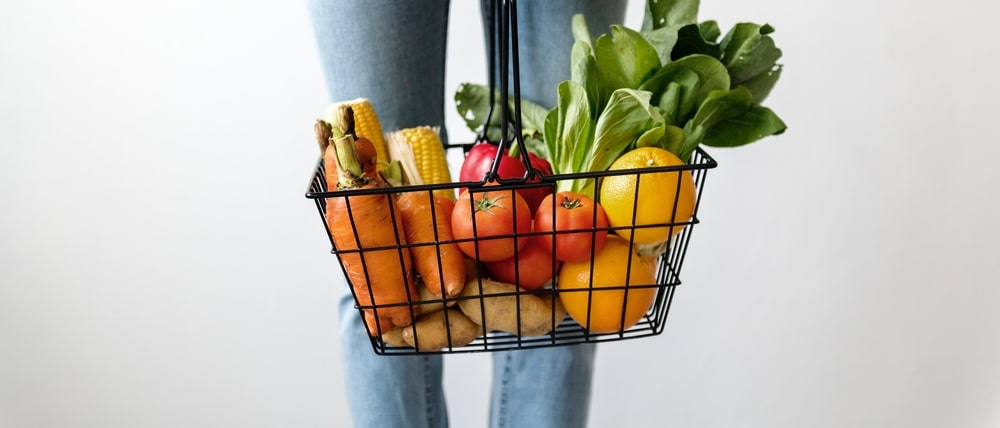
Sussex asks, can veganism save the planet?
21 February 2019 saw the second panel discussion of The Exchange – a new initiative, led by the University of Sussex’s External Relations division, designed to encourage group discussions, sharing of ideas and lively debate.
Hosted at the Attenborough Centre for the Creative Arts at the University of Sussex, the panel discussion centred around veganism and whether it could ‘save the planet’ or whether it is a small part in a much bigger climate conundrum.
The event was chaired by Sussex’s Dr Melissa Lazenby (Doctor of Climate Science) who has a particular interest in the field of climate research and analysis in southern Africa.
Melissa was joined by six panellists:
- Louise Davies – Head of Campaigns, Policy and Research at The Vegan Society and Sussex alumna (Media Studies 1999)
- Leo Hickman – Director and editor of Carbon Brief – a UK-based website covering the latest developments in climate science – and Sussex alumnus (ENGAM 1991)
- Sebastien Kaye – Undergraduate student at the University of Sussex, trustee and volunteer for Plan B Earth, a legal charity focused on holding the British government to account for climate harms
- Nesta McGregor – Radio 1 Newsbeat reporter who in 2018 took part in Veganuary, documenting his efforts for a series on the BBC website
- Sean O-Callaghan – Aka The Fat Gay Vegan, award-winning writer and vegan events organiser
- Isabella Tree – Manages Knepp Castle Estate with conservationist Charlie Burrell and is the author of Wilding: The Return of Nature to a British Farm.
The idea for this discussion was to try and cut through some of the recent rhetoric and explore the wider issues associated with the veganism debate. The panellists explored some key points surrounding what is a current issue and a huge part of the news agenda.
To kick off the debate, the headline question: ‘Can veganism save the planet?’ was posed to the panel. After some discussion, they each considered their individual responsibility in combating climate change and whether, in the face of corporate power and national policies, this would ever be enough? The final question was aimed at the future of veganism and whether it has a major part to play in the climate change debate.
Isabella Tree, conservationist and author from the Knepp Estate, addressed the problems of everyone taking up a vegan diet on the environment. She remarked, “We’ve only got 60 harvests left in the world, 60 years of top soil. In order to get our soils back, we need to have grazing animals as part of that mix, as part of the food and carbon cycle.”
This point was backed up by Sebastien Kaye, Sussex student and passionate environmentalist, who added, “I think there’s a wider problem here, where there’s a discourse being presented whereby people are told that environmental degradation is caused by people and must be solved by people at the level of the individual. Whereas really, what’s causing climate change, it’s not just our meat consumption, it’s something far bigger than that.”
However, Louise Davies, from The Vegan Society, disagreed and thought the power of individual change should not be underestimated. “When considering that going vegan can reduce your food carbon footprint by 50%, I think that does make us feel like it can make a difference as individuals.”
Louise went on to address the need to find balance with farmers and existing structures, but did agree that policy change was needed.
Leo Hickman, editor and director of Carbon Brief, pointed to the influence of media on public attitudes. Using BBC’s Blue Planet 2 as an example, he recalled that after just three days of the final episode airing, politician Michael Gove had started tweeting about plastic pollution in response.
Leo explained, “You have to pinch yourself sometimes to remind yourself how quickly social change can happen at crucial points. You can see a change in public attitude happen very quickly – not just with environmental issues … things can change dramatically within a generation.”
Radio 1 Newsbeat reporter Nesta McGregor, whose work cuts across youth media, agreed with Leo entirely. “I think more than any other generation, this is one that is much more influenced by social media and celebrity.
However, he is optimistic for the future, putting this down to the passion of young people. “I think we might even get to a point where the options are mainly vegan with a meat alternative. […] That one vegan thing on the menu is just going to grow and grow.”
Sean O’Callaghan, AKA Fat Gay Vegan, addressed the misconceptions facing vegan lifestyles. “Veganism doesn’t stop with what’s on our plate – it usually starts there for people as a choice but we need to think globally about how veganism can solve a lot of problems and how we can apply it to a whole range of social justice issues.”
The debate concluded with an audience vote on whether veganism can save the planet? The result, rather surprisingly, was an emphatic no, with many in the crowd saying that much more was needed to save the world from climate catastrophe.
You can watch the full recording of the event here on the University’s Facebook page.
Our online Masters in Sustainable Development aims to nurture discussion and debate. Join our next webinar to find out more about the course and studying online with Sussex.